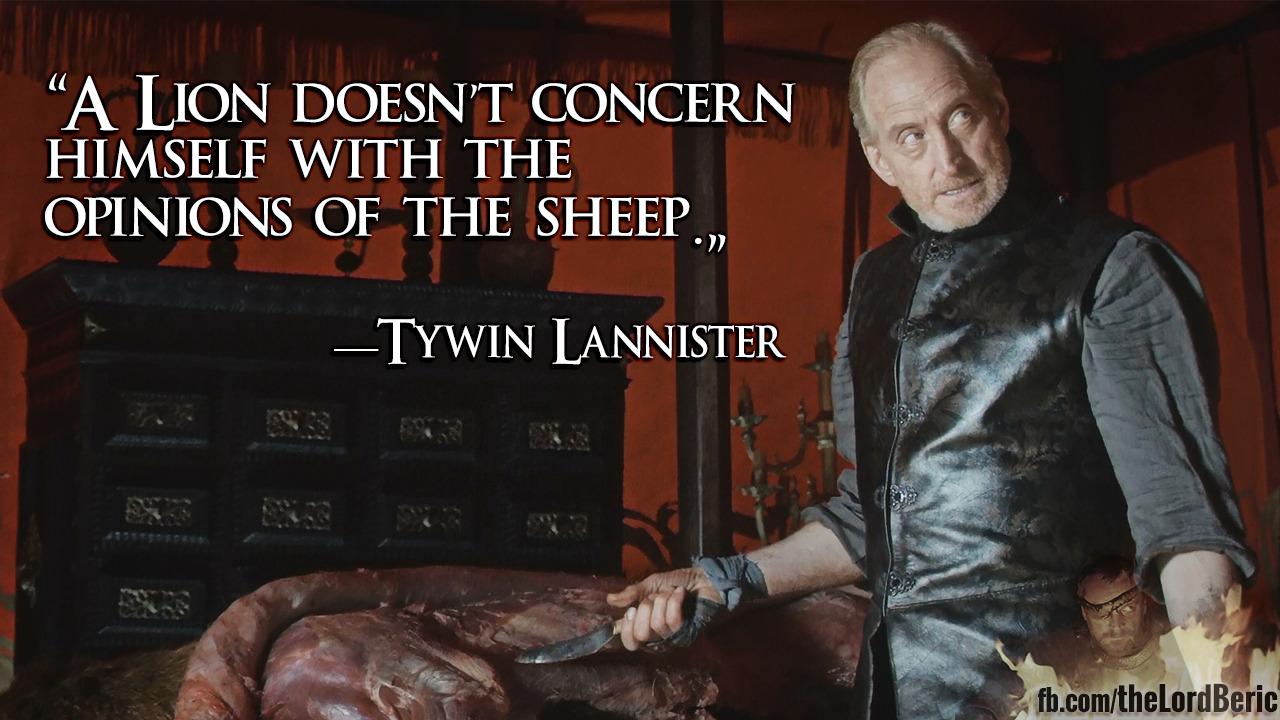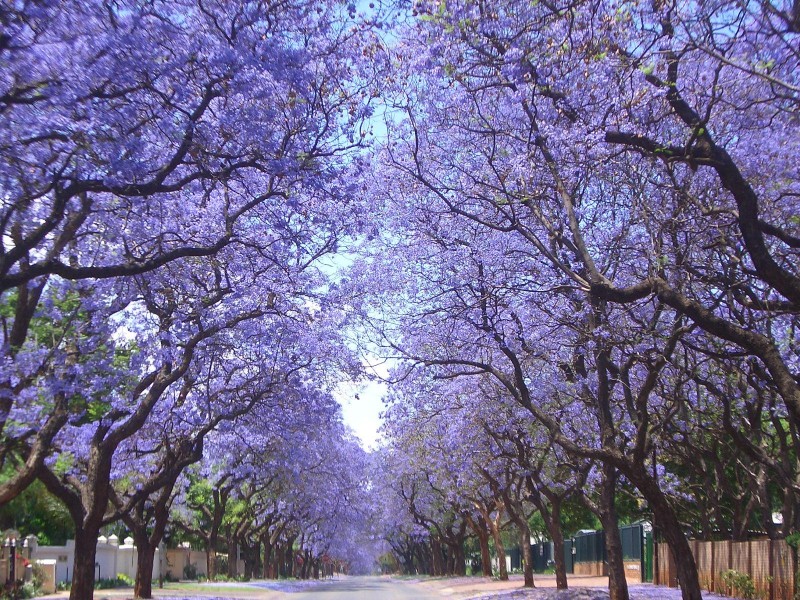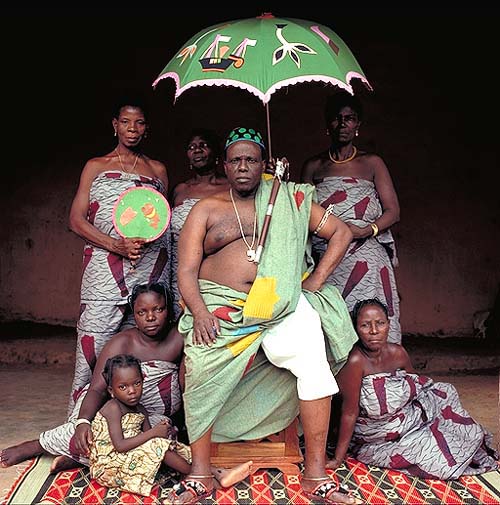Today, once again, I will be writing about home. Not the home where I live in but the home I came from. I grew up in Bulawayo, in Southern Zimbabwe. It's a city where I spent the first eighteen years of my life (back then my main aim was to leave) but it's a city that shaped me and whose very texture I miss. But more than the city and my friends, I miss my homes. And no, that is not a typo (see Rule 6), as an African, every home where a relative lived was my home. That's just how things were. Those were the rules and here are the top ten (in no particular order):
10. Elders are to be respected
End of story. There was no if, and or but about it.
9. Money does not grow on trees
This is a statement that was hammered into my head time and time again, my parents, uncles and aunts repeated it ad nauseam.
"Stop wasting water as if money grows on trees."
"Why did you leave the lights on? Money doesn't grow on trees."
" Why is the Mazoe finishing so fast, do you think Spar gives them out for free eh? Money doesn't grow on trees!"
Growing up, one never quite understands the implication of all those rebukes and the place they were coming from but now as a working adult and with bank statements, tax declarations and bills pouring through my postal box like water, I now (quite sadly) understand. And living in Europe, where people do live as if money (and resources) grow on trees, I am grateful for the lesson.
8. There is no such thing as sleeping in
When I was in Algeria for university one of the (guilty) pleasures of life that I discovered was waking up at midday on a weekend. I would like to say that this was a rare occurrence but I have enough sins on my plate let me not add lying to the list. (In my defence though, once you live through 45° Celsius summers you won't be snickering so hard at me will you?) The joy of knowing it was a Saturday and that there was absolutely nothing to do was glorious and I would open one eye early in the morning, acknowledge the world existed and go back to sleep.
Why was slothful submission to sleep this glorious you ask? Because growing up, there was no such thing as a weekend. My mother would come and knock loudly on my door if I slept too late and if she didn't hear the patter of feet in a few seconds she would burst into the room and draw the curtains, sunlight streaming into the room like an uninvited guest at an African wedding. Any notion of sleeping a few more minutes would die there and there because my bedroom faced the East and the full glory of the day would blind me momentarily and chase sleep away. My mother would stand there to meet any complaints, "Ah, when I was growing up, we would be up long before the sun had finished charging its batteries, and here you are complaining in bed at 9am. Mxm. Vila voxo!"
7. You know nothing John Snow!
Fans of Game of Thrones and those raised in African households will know what I am talking about. The formulation is simple: as an African child growing up in an African household any complaints on why things were as they were would be met with the phrase: "ah, you know nothing shame. When I was growing up..."
Complaints about why we had to take the bus to school when the other children had cars: "you know nothing, when I was growing up we used to walk ten kilometres to school and we would arrive fresh and ready to learn."
Complaints about why ZESA was gone: "ah when I was growing up, we had candles and gas lights to study with and when night fell it was time to sleep vele. If only you knew."
Complaints about being bored and having nothing to do: "hehe if only you knew. When I was a boy I would be woken before dawn to go and herd the cattle and only be back home after the sun had set. Children of today shame!"
Complaints about going to the rural areas for holiday: "you know nothing you child of the City. This is where I grew up. This was my home"
Looking back I really do realise that I really did not know anything.
6. Family comes first
Without going too deeply into the drama that is family (my mothers family is Sotho and they speak Sotho which I don't understand, my fathers is Ndebele but they all speak Shona and that's just touching the surface), there was one thing that came as naturally as breathing. It was a rule that was hardly spoken, it just was. Just as it is in Game of Thrones (forgive me, I am a geek and therefore a superfan), family is everything. My parents once lived in Europe before I was born and they told me about siblings who would book appointments before seeing each other and that would be once or twice a year (this apparently was Sweden in the eighties). To illustrate how different things were in my African household, we once drove to Gwanda where my aunt lived when I was around six or seven. There I met my cousin who was a year younger than me. When it was time to leave, I calmly told my parents that they could leave without me, I would take the bus and follow on Monday morning. And that is exactly what I did.
No invitations necessary, no deadlines or schedules to work around. I would spend weeks in Harare at my cousins, a month at my aunts in Beit-bridge and weekends with cousins in Bulawayo on the spur of the moment. Because that is what families do.
5. Gratitude is not optional
My name, Bongani, literally is an instruction to 'give thanks'. One does not just walk into an African household and eat food then rub ones belly in satisfaction. One claps their hands in gratitude and lists the clan names of the house before thanking them from the bottom of their hearts. And that is that.
One of the best stories from my cousins was when they ate then sat to watch TV as if nothing had happened. Their mother, my aunt, quietly gathered the plates went to the kitchen and cooked a fresh pot of sadza and stew and served them again. When she registered their apparent dismay she innocently mocked, "I didn't hear a thank you so I assumed you were still hungry. Now finish those plates."
4. When we buy new things one does not remove the plastic cover until it is torn and begging to be removed
We all know the TV remote that stayed wrapped in its plastic until it had holes. And in an age where we all now regularly buy smartphones with the processing capabilities of a 1980's supercomputer then replace them when the screen cracks, this is just a beautiful extension of rule number 9. And an application of rule 7. We know nothing.
3. Friends should be chosen carefully
I would like to think I was not the only one who was subjected to a full FBI interrogation when I asked that a friend come and sleep over. Who are his parents? How long have you known this person? Where does he live? But of course once they met my friends they would be granted the seal of approval and our home was theirs.
I only came to understand why when I was leaving for Algeria. My mother, a woman I had never been apart from for more than three months at a time gave me this parting piece of advice: "choose your friends wisely. They will be many acquaintances in life and you can afford to have bad ones but one thing you cannot afford is a bad friend."
Now, looking back, regret says; if only I had understood exactly what she meant.
2. I am because we are
In Ndebele we have a saying, umuntu ngumuntu ngabantu. It is part of the concept of Ubuntu. (And no, white people, it is not Ubhuntu, it is Ubuntu) Simply put it means 'a person Is because of other people.' Notice the capital 'I' in 'is', that again is not a typo: our raison d'être (the French have a beautiful way of expressing that capital I: raison d'être; the sole or ultimate purpose of something or someone) is not for ourselves but to change the world around us and to serve those around us. In some households it would be expressed as don't waste food, children are dying in that country I don't want to name whilst you are busy here wasting food. Certainly that was true in mine as well. But it was also in the small things, stubbing your toe and squealing with pain and everyone around you says sorry. In Europe when I say sorry to a friend who has hurt himself, they laugh at me and say but it wasn't your fault. Yes, I know but I feel your pain.
I Am because you are. It was being reminded to do whatever one could do for those less fortunate than oneself. It was weekends spent at a children's shelter with my Dad, watching my mother give her time and effort to whatever cause she felt could help. And slowly learning that I could do the same.
1. This is not a democracy, it is a constitutional monarchy
I remember watching some America reality show and seeing the children swearing at their parents. And when I say swearing, I mean screaming 'fuck you' at their mother. For those who were raised in African households this needs no further explanation. For those who were not, let me just say a little demon whispered in my mind, imagine that happening to you and the rest of my mind revolted in horror. Because we all know what is like in an African household (if you still don't know refer to rule 10). And we all know that any bambini unfortunate enough to whisper back at an African parent will know that day what is is like to visit hell.
"I'm beating you and you are crying? Hahaha manje you will know what it's like to cry."
[Five minutes later]
"I'm beating you and you are silent? You are a man now? Let's see who is the older one today!"
Zeroth Rule. There is nothing an African Household will not do for its own
This is an extension to rule 6. But more specifically aimed at the household rather than the extended family. In Ndebele we have a saying, indlovu ayisindwa ngumboko wayo.
Literally put, an elephant is not weighed down by its trunk.
Simply put: there is nothing I would not do for them.
And there is nothing they haven't done for me.
 |
| "A city whose very texture I miss" Jacaranda's in Bulawayo (c) Frankie Kay https://frankiekayfotos.wordpress.com/ |
10. Elders are to be respected
End of story. There was no if, and or but about it.
9. Money does not grow on trees
This is a statement that was hammered into my head time and time again, my parents, uncles and aunts repeated it ad nauseam.
"Stop wasting water as if money grows on trees."
"Why did you leave the lights on? Money doesn't grow on trees."
" Why is the Mazoe finishing so fast, do you think Spar gives them out for free eh? Money doesn't grow on trees!"
Growing up, one never quite understands the implication of all those rebukes and the place they were coming from but now as a working adult and with bank statements, tax declarations and bills pouring through my postal box like water, I now (quite sadly) understand. And living in Europe, where people do live as if money (and resources) grow on trees, I am grateful for the lesson.
8. There is no such thing as sleeping in
When I was in Algeria for university one of the (guilty) pleasures of life that I discovered was waking up at midday on a weekend. I would like to say that this was a rare occurrence but I have enough sins on my plate let me not add lying to the list. (In my defence though, once you live through 45° Celsius summers you won't be snickering so hard at me will you?) The joy of knowing it was a Saturday and that there was absolutely nothing to do was glorious and I would open one eye early in the morning, acknowledge the world existed and go back to sleep.
Why was slothful submission to sleep this glorious you ask? Because growing up, there was no such thing as a weekend. My mother would come and knock loudly on my door if I slept too late and if she didn't hear the patter of feet in a few seconds she would burst into the room and draw the curtains, sunlight streaming into the room like an uninvited guest at an African wedding. Any notion of sleeping a few more minutes would die there and there because my bedroom faced the East and the full glory of the day would blind me momentarily and chase sleep away. My mother would stand there to meet any complaints, "Ah, when I was growing up, we would be up long before the sun had finished charging its batteries, and here you are complaining in bed at 9am. Mxm. Vila voxo!"
7. You know nothing John Snow!
Fans of Game of Thrones and those raised in African households will know what I am talking about. The formulation is simple: as an African child growing up in an African household any complaints on why things were as they were would be met with the phrase: "ah, you know nothing shame. When I was growing up..."
Complaints about why we had to take the bus to school when the other children had cars: "you know nothing, when I was growing up we used to walk ten kilometres to school and we would arrive fresh and ready to learn."
Complaints about why ZESA was gone: "ah when I was growing up, we had candles and gas lights to study with and when night fell it was time to sleep vele. If only you knew."
Complaints about being bored and having nothing to do: "hehe if only you knew. When I was a boy I would be woken before dawn to go and herd the cattle and only be back home after the sun had set. Children of today shame!"
Complaints about going to the rural areas for holiday: "you know nothing you child of the City. This is where I grew up. This was my home"
Looking back I really do realise that I really did not know anything.
 |
| (c) HBO |
6. Family comes first
Without going too deeply into the drama that is family (my mothers family is Sotho and they speak Sotho which I don't understand, my fathers is Ndebele but they all speak Shona and that's just touching the surface), there was one thing that came as naturally as breathing. It was a rule that was hardly spoken, it just was. Just as it is in Game of Thrones (forgive me, I am a geek and therefore a superfan), family is everything. My parents once lived in Europe before I was born and they told me about siblings who would book appointments before seeing each other and that would be once or twice a year (this apparently was Sweden in the eighties). To illustrate how different things were in my African household, we once drove to Gwanda where my aunt lived when I was around six or seven. There I met my cousin who was a year younger than me. When it was time to leave, I calmly told my parents that they could leave without me, I would take the bus and follow on Monday morning. And that is exactly what I did.
No invitations necessary, no deadlines or schedules to work around. I would spend weeks in Harare at my cousins, a month at my aunts in Beit-bridge and weekends with cousins in Bulawayo on the spur of the moment. Because that is what families do.
 |
| Family. Duty. Honour (c) HBO |
5. Gratitude is not optional
My name, Bongani, literally is an instruction to 'give thanks'. One does not just walk into an African household and eat food then rub ones belly in satisfaction. One claps their hands in gratitude and lists the clan names of the house before thanking them from the bottom of their hearts. And that is that.
One of the best stories from my cousins was when they ate then sat to watch TV as if nothing had happened. Their mother, my aunt, quietly gathered the plates went to the kitchen and cooked a fresh pot of sadza and stew and served them again. When she registered their apparent dismay she innocently mocked, "I didn't hear a thank you so I assumed you were still hungry. Now finish those plates."
4. When we buy new things one does not remove the plastic cover until it is torn and begging to be removed
We all know the TV remote that stayed wrapped in its plastic until it had holes. And in an age where we all now regularly buy smartphones with the processing capabilities of a 1980's supercomputer then replace them when the screen cracks, this is just a beautiful extension of rule number 9. And an application of rule 7. We know nothing.
3. Friends should be chosen carefully
I would like to think I was not the only one who was subjected to a full FBI interrogation when I asked that a friend come and sleep over. Who are his parents? How long have you known this person? Where does he live? But of course once they met my friends they would be granted the seal of approval and our home was theirs.
I only came to understand why when I was leaving for Algeria. My mother, a woman I had never been apart from for more than three months at a time gave me this parting piece of advice: "choose your friends wisely. They will be many acquaintances in life and you can afford to have bad ones but one thing you cannot afford is a bad friend."
Now, looking back, regret says; if only I had understood exactly what she meant.
2. I am because we are
In Ndebele we have a saying, umuntu ngumuntu ngabantu. It is part of the concept of Ubuntu. (And no, white people, it is not Ubhuntu, it is Ubuntu) Simply put it means 'a person Is because of other people.' Notice the capital 'I' in 'is', that again is not a typo: our raison d'être (the French have a beautiful way of expressing that capital I: raison d'être; the sole or ultimate purpose of something or someone) is not for ourselves but to change the world around us and to serve those around us. In some households it would be expressed as don't waste food, children are dying in that country I don't want to name whilst you are busy here wasting food. Certainly that was true in mine as well. But it was also in the small things, stubbing your toe and squealing with pain and everyone around you says sorry. In Europe when I say sorry to a friend who has hurt himself, they laugh at me and say but it wasn't your fault. Yes, I know but I feel your pain.
I Am because you are. It was being reminded to do whatever one could do for those less fortunate than oneself. It was weekends spent at a children's shelter with my Dad, watching my mother give her time and effort to whatever cause she felt could help. And slowly learning that I could do the same.
1. This is not a democracy, it is a constitutional monarchy
I remember watching some America reality show and seeing the children swearing at their parents. And when I say swearing, I mean screaming 'fuck you' at their mother. For those who were raised in African households this needs no further explanation. For those who were not, let me just say a little demon whispered in my mind, imagine that happening to you and the rest of my mind revolted in horror. Because we all know what is like in an African household (if you still don't know refer to rule 10). And we all know that any bambini unfortunate enough to whisper back at an African parent will know that day what is is like to visit hell.
"I'm beating you and you are crying? Hahaha manje you will know what it's like to cry."
[Five minutes later]
"I'm beating you and you are silent? You are a man now? Let's see who is the older one today!"
Zeroth Rule. There is nothing an African Household will not do for its own
This is an extension to rule 6. But more specifically aimed at the household rather than the extended family. In Ndebele we have a saying, indlovu ayisindwa ngumboko wayo.
Literally put, an elephant is not weighed down by its trunk.
Simply put: there is nothing I would not do for them.
And there is nothing they haven't done for me.






